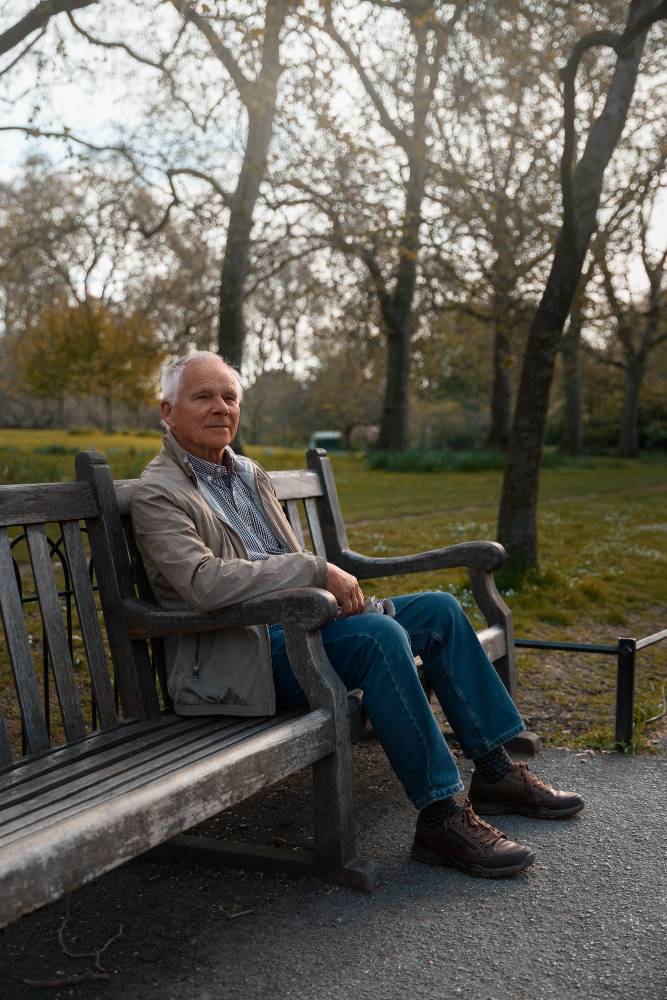Introduction :
The psychology of 60-year-old elders offers a fascinating glimpse into the inner workings of the human mind as it navigates the complexities of ageing. At this stage of life, individuals often reflect on their past experiences, contemplate their present circumstances, and envision their future aspirations. In this blog, we’ll delve into the psychology of 60-year-old elders, exploring their thoughts, emotions, and perspectives on life. From the challenges of ageing to the joys of wisdom and fulfilment, we’ll uncover the multifaceted nature of their psychological landscape, shedding light on the rich tapestry of thoughts that shape their worldview.
The Inner World of 60-Year-Old Elders:

As individuals reach the age of 60, they often experience a profound sense of introspection and reflection. This stage of life is characterised by a heightened awareness of mortality, prompting individuals to contemplate the meaning of life, the legacy they wish to leave behind, and the values that define their existence. Many 60-year-old elders find themselves grappling with existential questions about identity, purpose, and the pursuit of happiness as they seek to make sense of their place in the world.
Embracing Wisdom and Experience:
One of the most notable aspects of 60-year-old elders is their wealth of life experience and profound wisdom. Having traversed the challenges of youth and adulthood, they approach life with a unique perspective and understanding that only time can bestow. This wisdom guides their decision-making, influences their relationships, and shapes their perceptions of the world. Rather than dwelling on regrets or missed opportunities, many 60-year-old elders embrace their past experiences as invaluable lessons that have moulded them into the individuals they are today.
Navigating Transitions and Loss:
Despite the challenges of ageing, including physical decline, loss, and role transitions, 60-year-old elders demonstrate remarkable resilience. As they confront the realities of mortality, they may wrestle with grief, uncertainty, and existential questions. However, many individuals also find strength and resilience in adversity, tapping into their inner resources and support networks to navigate life’s inevitable transitions with grace and courage.
Rediscovering Purpose and Passion:
As individuals reach the age of 60, they often experience a reawakening of passions and interests that may have been sidelined during their earlier years. Freed from the demands of a career and raising a family, many 60-year-old elders embrace the opportunity to pursue hobbies, travel, volunteer work, and other activities that bring them joy and fulfilment. This renewed sense of purpose and passion invigorates their spirits and enhances their overall well-being as they embark on new adventures and experiences in this stage of life.
Fostering Meaningful Connections:
Despite the challenges of ageing, 60-year-old elders place a high value on maintaining meaningful connections with others, whether with family members, friends, or community members. Social support and companionship are crucial to their psychological well-being, providing comfort, validation, and a sense of belonging. Many 60-year-old elders find fulfilment in nurturing relationships, sharing stories and experiences, and passing down wisdom to younger generations, fostering a sense of continuity and interconnectedness across the lifespan.
Exploring Life Transitions:

As 60-year-old elders navigate this stage of life, they often encounter significant life transitions, such as retirement, empty nesting, and changes in health. These transitions can evoke emotions, from excitement and anticipation to anxiety and uncertainty. Many individuals find themselves redefining their roles and identities without longstanding responsibilities, which can lead to a period of introspection and adjustment. By embracing these transitions as opportunities for growth and self-discovery, 60-year-old elders can navigate this stage with resilience and adaptability.
Coping with Health Changes:
Health considerations play a central role in the psychology of 60-year-old elders as they confront the realities of ageing and the potential onset of chronic health conditions. While some individuals may experience physical decline and limitations, others may maintain robust health and vitality well into their later years. Regardless of their health status, 60-year-old elders often priorities self-care practices, such as exercise, nutrition, and preventive healthcare, to maintain their well-being and quality of life.
Additionally, they may seek support from healthcare professionals, family members, and community resources to address their health challenges. Finding Meaning and Purpose: As individuals reach the age of 60, they often seek more profound meaning and purpose in their lives, reflecting on their contributions to society and their legacy. Many 60-year-old elders engage in activities that align with their values and passions, whether volunteering, mentoring, or pursuing creative endeavors. By positively impacting the world around them, they cultivate a sense of fulfilment and satisfaction that enriches their psychological well-being.

Embracing Mindfulness and Gratitude:
Mindfulness and gratitude practices are increasingly recognized as powerful tools for enhancing mental health and well-being, particularly among 60-year-old elders. These individuals often embrace mindfulness techniques, such as meditation, deep breathing, and mindful movement, to cultivate a sense of presence and inner peace. Similarly, they may cultivate gratitude, regularly expressing appreciation for the blessings in their lives and savoring moments of joy and connection. These practices can help 60-year-old elders navigate the ups and downs of ageing with excellent stability and resilience.
Fostering Intergenerational Connections:
60-year-old elders often play a vital role in bridging the generation gap and fostering connections between younger and older family members. They may serve as mentors, confidants, and role models for younger generations, sharing their wisdom and life experiences in ways that promote understanding and empathy. By maintaining open lines of communication and actively engaging with younger family members, 60-year-old elders contribute to the cohesion and vitality of their families, creating a sense of continuity and shared purpose across generations.
Conclusion:
The psychology of 60-year-old elders offers a rich tapestry of thoughts, emotions, and perspectives on life. From reflections on the past to aspirations for the future, these individuals navigate the complexities of ageing with grace, resilience, and a sense of curiosity. By embracing their inner wisdom, rediscovering passions, and fostering meaningful connections, 60-year-old elders find fulfilment and purpose in this stage of life, leaving a lasting legacy of resilience, understanding, and compassion for generations to come.
Be First to Comment